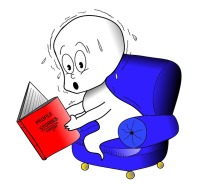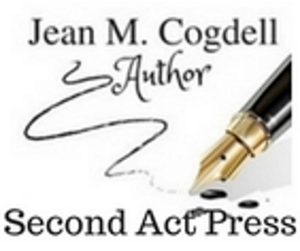Do you understand how to flesh out your ideas?
Not me, I’m still learning. Taking an idea and writing a full novel is not easy, not easy at all.

Writing sounds so easy when an idea burst into my mind like fireworks on the 4th of July. But, as they say, the devil’s in the details. And then I’m stumped.
Ever happen to you? Great idea but…
Reading books and articles help me. One of my favorite go-to bloggers is Janice Hardy over at Fiction University. She gives writers good step-by-step instructions to take an idea to finished story.
Another great resource is She Writes. This is a great source for tips on how to flesh out a scene. And isn’t that what makes up a chapter? Scenes?
What did I get from the articles below?
- know what the scene is about
- can I relate to my character’s emotions
- write like no one will read it, go crazy
- use images to invoke place and time
- find the problem, find the stakes
- ask if each scene moves the protagonist toward her goal
- know what is important to the characters
Tell me –
Do you have trouble launching your ideas?
Do you have a tip that would help me flesh out an idea?
Read these articles and share the tips helped you. I’d love to know.
I Have An Idea for a Novel! Now What? by Janice Hardy
7 WAYS TO “FLESH OUT” A SCENE POSTED BY ELISABETH KINSEY
Leave me a comment – I love comments.
Please head over and “like” my Facebook page at Facebook at jeanswriting . Or to connect with me, click the “write me” tab. Don’t forget you can follow me on StumbleUpon, on Twitter @jeancogdell , and Amazon.com.
Please stop by and say hey! The lights are on, and I’m waiting.
Please remember to share this post with your Twitter peeps and Facebook fans.


Reblogged this on Viv Drewa – The Owl Lady.
LikeLiked by 1 person
I hear you, Jean. I have found that using She Writes worksheets helps me. I also use the worksheets of Jamie Gold as well. I tried just going with one set of worksheets created by one author. Didn’t work for me. Plot outline is different from scene outline, which is different from getting to know the characters.
LikeLiked by 1 person
Thanks for the tip. I’ll check out their worksheets for sure.
LikeLiked by 1 person
Reblogged this on Don Massenzio's Blog and commented:
Here’s a great post from Jean’s Writing blog on the topic of taking your ideas to story.
LikeLiked by 1 person
Thank you, Jean! Well said, and so true for me. I try to outline story and article ideas beforehand but I tend to get into sentences and paragraphs before I finish a map of where I want to go, start to finish–leads to a lot of “pointless” prose (not all of which is useless, but not productive in the narrow sense of completing a job).
This is a bit “out there” as a resource but Peter Ackroyd in his monumental biography, Dickens, spells out a densely detailed step-by-step Method For Writers, drawn mostly from the writings, correspondence and conversations of the great master himself. This writer’s manual is embedded in the life story of a fascinating man, and shows the very mechanical approach to creativity that is one key to Dickens’ massive productivity and consistency a writer. I literally can’t put it down, and can’t recommend it highly enough as a deep-dive resource for writers.
LikeLiked by 1 person
Cool thanks for the tip, I’ll be sure to check out Peter Ackroyd
LikeLike
Reblogged this on Kim's Author Support Blog.
LikeLiked by 1 person
No story or novel arrives, complete, in your brain. If you think your have to have all the pieces (or even the first line) before you write, you’re wrong. I personally write lists of notes, and incomplete outline, and sometimes skip chapters to return to them later. I have returned after the last chapter to add entire sections to the novel. (Yes, you have to reread after that point to make everything consistent, but it works). Nor do I hesitate to steal (ideas, not word-for-word). No idea is original, what matters is how you weave it into your story.
The act of writing should inspire new ideas about what you’re writing. Don’t fear plot holes.They may be your brain telling you to work what you build the materials in your other chapters to build a mound that will fill the hole.
LikeLiked by 3 people
Good tip, going to another chapter when I get bogged down. Thanks!
LikeLike
Reblogged this on Chris The Story Reading Ape's Blog.
LikeLiked by 1 person
Thanks Ape!
LikeLiked by 1 person
Welcome Jean 👍😃
LikeLiked by 1 person
Reblogged this on When Angels Fly.
LikeLiked by 1 person
Thank you!
LikeLiked by 1 person
Most welcome!
LikeLiked by 1 person
In terms of giving my ideas structure, Larry Brooks’ Story Engineering is the most helpful for me. But it’s important to get them all out and be free with your imagination before gathering them up off the floor I think 🙂
LikeLiked by 1 person
I love Larry’s book too. It’s one of my go to references. And you are so right, get it down, (not always pretty) and then clean it up. 🙂
LikeLiked by 1 person
When I started my first book I jotted a short outline and wrote. I was done with my story 10 pages. Not quite novel-length. So yes, I had to turn my idea into a real book. Besides your blog and the blogs you mentioned- my biggest help has come from reading and studying other books and writers. Good post Jean
LikeLiked by 1 person
Thanks Jena. Books and blogging writers are my life line. Same here, my novel is more of a short story right now. So it’s time to “flesh” out those scenes. Harder than it sounds. LOL
LikeLiked by 1 person